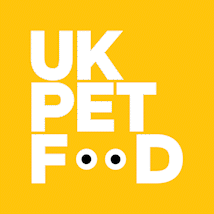Canine DCM And Pet Food
PFMA (now UK Pet Food) is aware of the current investigation by the US-based Food & Drug Administration (FDA) which started in 2018, and the latest research, into possible causes of canine dilated cardiomyopathy (DCM) in the US. Whilst the cause is currently unknown, investigations are looking at the possible role of diet in relation to specific ingredients.
According to the FDA, “most of the diets associated with the reports of non-hereditary DCM have legume seed ingredients, also called “pulses” (e.g., peas, lentils, etc.), high in their ingredient lists” which is in line with the findings of the new study by Tufts University. However, FDA emphasises that pulse ingredients have been used in pet food for many years, with no evidence to indicate they are inherently harmful to dogs.
PFMA, along with the European pet food federation – FEDIAF, have been closely monitoring the situation from the offset. Current research suggests that a variety of factors may influence the development of DCM in dogs and the FDA has currently no definitive information indicating that diets under investigation are inherently unsafe and need to be removed from the market, and continues its investigation.
Currently, there is no information to suggest a similar issue in the UK or Europe. In terms of advice for pet owners, PFMA urges owners to feed their pets with a complete and balanced diet, made by reputable manufactures. Owners should look for the term ‘complete’ on the pet food label. This is a legal term that means the product must by law provide all the nutrients a pet needs for healthy bodily function.
To ensure a ‘complete’ diet, members of the PFMA formulate their diets in line with the FEDIAF Nutritional Guidelines for Cats and Dogs. These guidelines detail the nutritional needs of cats and dogs at the varying life-stages from growth through to senior. If owners have any questions about their pet’s food they can contact the manufacturer of the product directly and consult their veterinary professional if they have any health concern for their pet.
For more information please visit the UK Pet Food website on the following topics:








